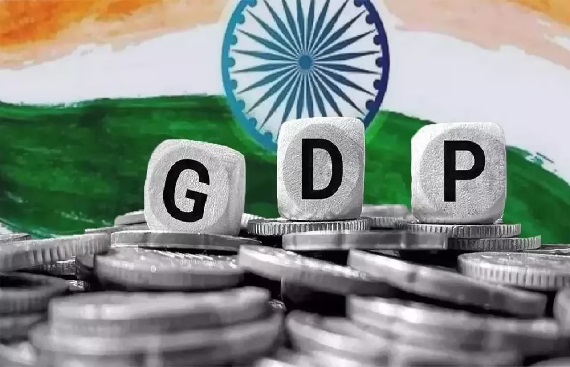India's Growth Stays Solid, Sequential Pace Slows: Gustavo Medeiros

- Ashmore Group’s Gustavo Medeiros says India’s economy remains strong but its growth momentum has slowed in recent months.
- Foreign investor sentiment has cooled due to high valuations, possible U.S. tariffs, and more attractive opportunities in other markets.
- Ashmore is adopting a cautious, defensive investment stance, warning that 'priced to perfection' stocks could face sharp corrections if earnings disappoint.
Ashmore Group's research head, Gustavo Medeiros, provides a more balanced perspective on India's economy: while it is inherently strong, growth momentum has slowed over the past few months. The British asset manager has reacted by reducing short-term exposure to India on account of sky-high valuations and doubts over proposed U.S. tariffs on Indian exports.
Medeiros points out that the recent deceleration is not based on economic weakness or weakening fundamentals. India still posts strong performance, and government capital spending is still sizable. But the rate of growth has clearly decelerated, while the wider economy itself is still resilient.
On the matter of tariffs, Medeiros depicts American policy as aggressive and describes it as a zero-sum bargaining strategy. However, he indicates that transitioning from a 50 percent tariff to 75 percent would not drastically change the overall economic effect specifically in industries such as pharmaceuticals, in which India enjoys a competitive advantage that rival nations cannot readily overcome.
Also Read: Indian Electronics Exports Face $30 Billion Risk from US Tariffs
The sentiment of foreign investors towards India has distinctly cooled in the last six to nine months. Though passive flows from around the world into emerging markets were constant aiding India get around 20 percent of the MSCI Emerging Markets index global active allocation has been weak. This is primarily because Southeast Asian nations, Latin American nations, and regions of Europe have more pleasing relative value propositions.
Medeiros observes India is already being 'derated' relative, not because its corporate or economic view is poor, but merely because other markets are just more attractive at current prices.
Looking further ahead, India has vast potential still waiting to be tapped. Medeiros notes that long-term aggregate returns might be among the most lucrative in the world but these potential gains are critically dependent on entry price. Numerous companies are priced on 'priced to perfection' assumptions, so any shortfall on earnings could bring instant and steep corrections. To protect against such volatility, Ashmore is taking a more defensive, cautious investment approach currently.
